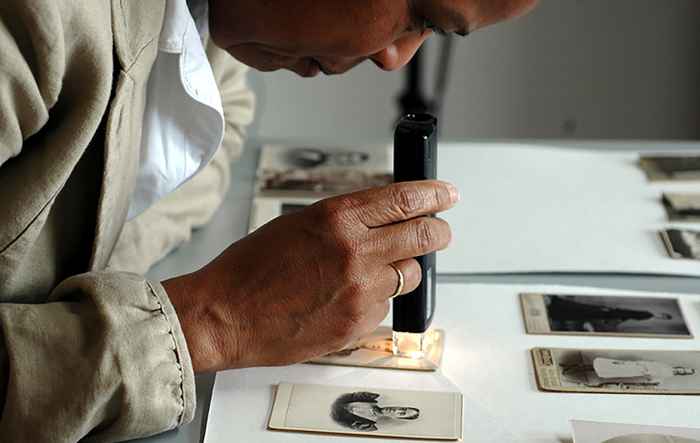Photography

A history of photographic processes
The course curriculum of the University of Amsterdam Photograph Conservation Programme aims to provide insight into the history, technology and conservation theory necessary to preserve photographs for the future. Nineteenth century processes as well as modern techniques and materials such as inkjet prints and other digital out-put processes are studied. During the programme, students examine the chemical and physical nature of photographs. They study deterioration mechanisms, conservation issues and research and perform necessary stabilisation treatments on photographic materials. Students work on photographs from public and private collections in the Netherlands.
Photographic conservation: Master's and beyond
In the first year, the curriculum focuses on examination, documentation and treatment options surrounding 19th century photography. Chemistry, literature study and preventive conservation form a large part of the curriculum. During the second year, material technology, research, and treatment options will be expanded to colour and digital processes. During both years emphasis is placed on critical thought and evaluation, conservation ethics, preventive conservation strategies and on the development of conservation skills. Public outreach and advocacy are also components of the curriculum.
During the two-year Advanced Professional Programme that follows the Master’s programme, students will implement their knowledge during practical training in an institutional setting and gain specialised knowledge by actively taking part in specialised workshops. Conservation research forms a major part of the Advanced Professional Programme.